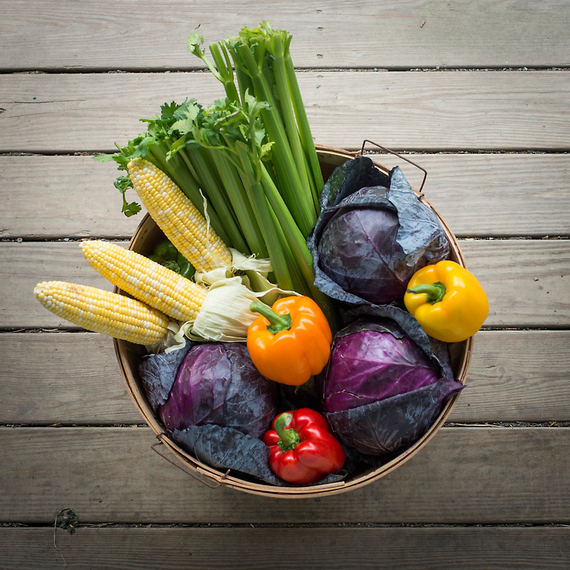Yesterday, on October 16, we celebrated World Food Day, which reminds us of some hard truths. Although we find many ways to celebrate food throughout the year, we waste 40% of it. Nearly 1 billion people around the world go to bed hungry every night. Food security is a major issue around the globe.
The amount of food we waste around the world is certainly foolish given the millions of people who lack access to food and are trapped in poverty, but it has another devastating effect you might not think about when you throw away half of your uneaten lunch.
Food waste affects climate change.
This year's World Food Day theme recognizes the need to bring these two issues together: "Climate is changing. Food and agriculture must too." I am thrilled that the Food and Agriculture Organization of the United Nations has chosen this as its theme this year. I fully believe that when food waste is managed as a climate issue, it will unlock new policies and resources to do something about it.
And food waste is definitely a climate issue. Here's why:
- If measured as a country, food waste is the third largest emitter of greenhouse gasses, behind China and the United States.
- Eliminating the carbon dioxide emissions from food waste is the same as taking every car off of every road, every year.
- The amount of water used to produce food we throw away would easily fill the entire water need for the continent of Africa.
- Not to mention, the food we waste is a resource to feed 4 billion more people - enough to feed all that suffer from hunger today and enough to feed our growing population through 2050.
So how do we do that? Two-thirds of all food waste happens at the production and distribution level, mostly in emerging economies where food often never makes it from harvest to a table, or frequently spoils in poor distribution systems or open-air markets.
This issue is ideal for emerging economies to incorporate in their COP21 climate commitments. Providing access to capital, technologies and best educational practices would help make a difference.
3 Easy Steps You Can Take
The other one-third of food waste happens at the consumer level. There are easy steps every person can take right now. Try implementing these actions in your daily life today:
- Shop with a plan. When you put an item in your grocery cart, make sure you know how you will use it. Are you going out of town next week? Buy the bare essentials so food doesn't rot in your refrigerator while you're gone.
- Embrace ugly fruits and vegetables. A bent carrot or heart-shaped potato still tastes just as delicious as their "perfectly-shaped" versions. Nature is perfectly imperfect - enjoy it!
- Take home your leftovers. There is no shame in the doggie bag. If you can't finish your meal at a restaurant, take it home! No need to make lunch the next day when you can heat up your leftovers from the night before.
If you want to explore the hidden connection between food waste, hunger and climate change, check out my book Food Foolish - all proceeds go to food charities.
Click here to receive notifications when my new blogs are posted on The Huffington Post.

